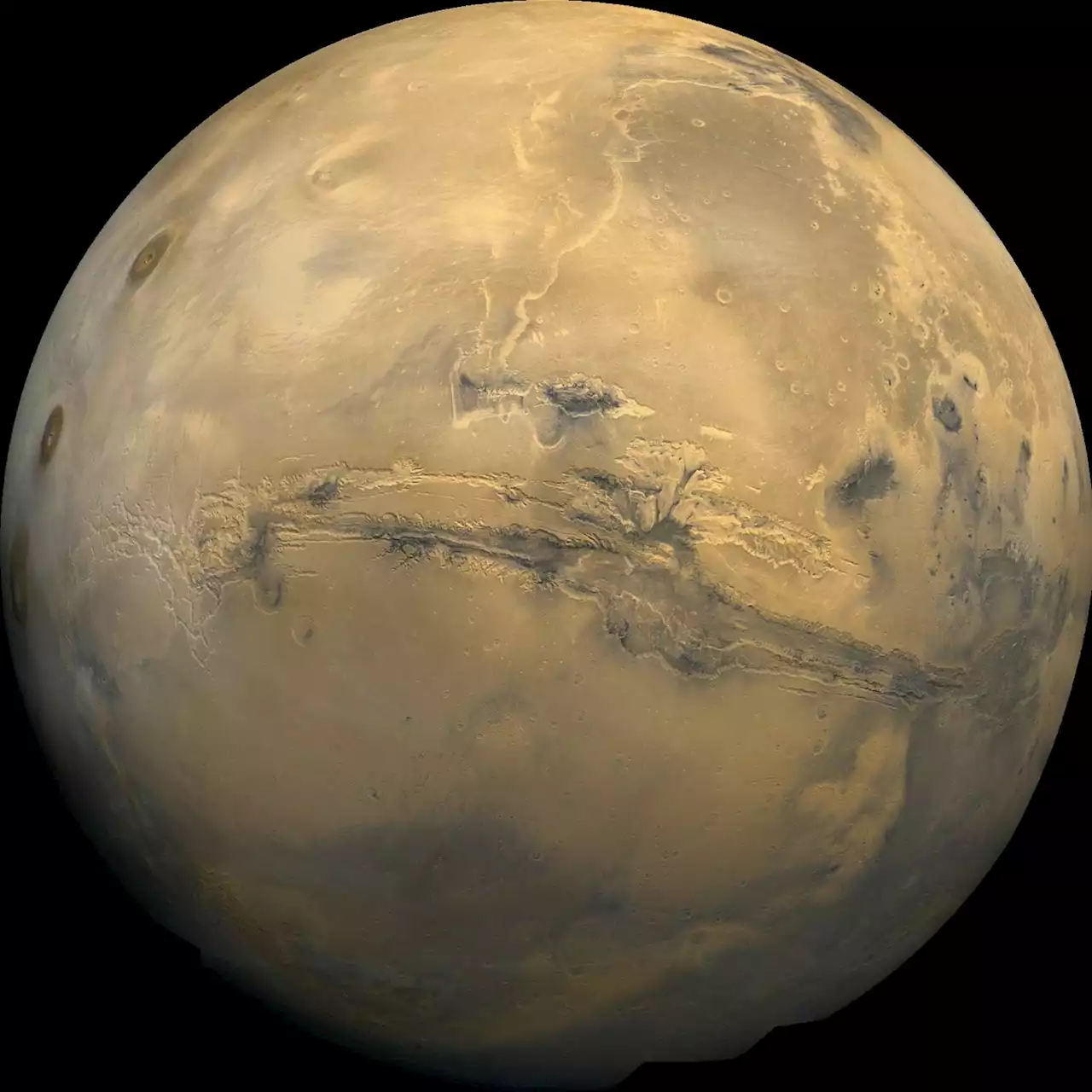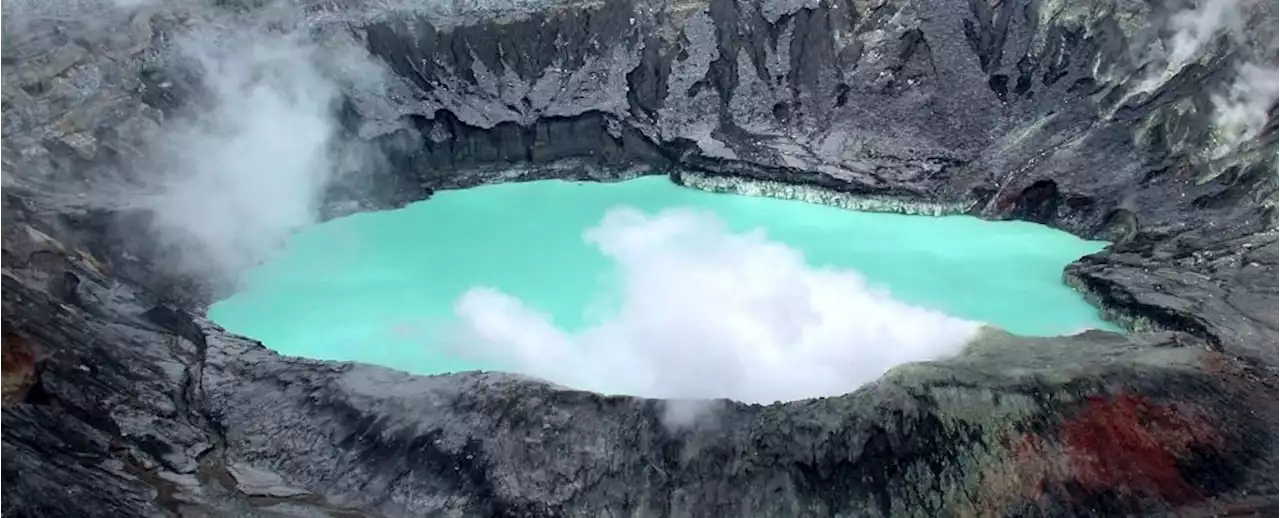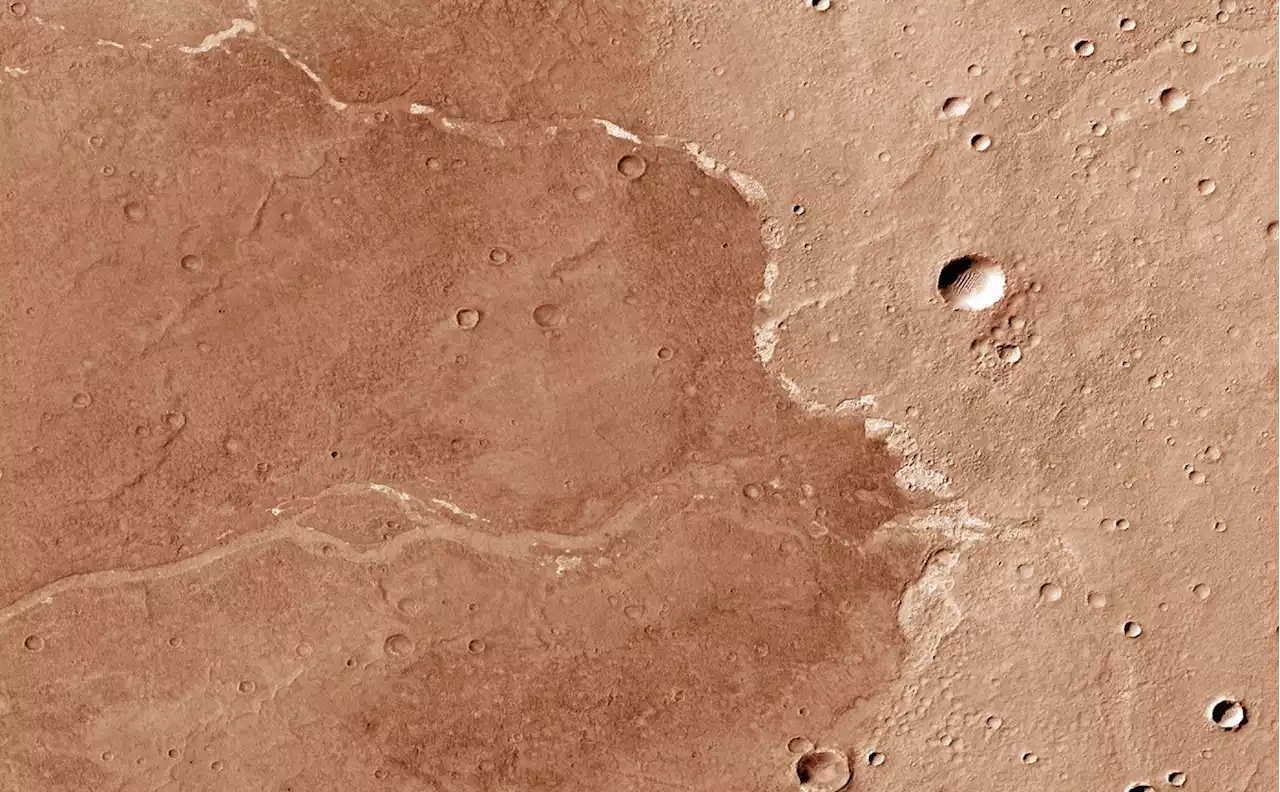Water Flowed on Martian Surface as Recently as Two Billion Years Ago, Study Suggests planetaryscience space science
It’s commonly believed that Martian liquid water evaporated about 3 billion years ago, but a duo of planetary scientists from Caltech and Johns Hopkins University Applied Physics Laboratory has found evidence that reduces that timeline significantly. Their analysis of data from the Compact Reconnaissance Imaging Spectrometer for Mars instrument onboard NASA’s Mars Reconnaissance Orbiter reveals signs of liquid water on Mars as recently as 2 billion to 2.
“Our findings center on the chloride salt deposits left behind as icy meltwater flowing across the landscape evaporated,” said Caltech’s Professor Bethany Ehlmann and Dr. Ellen Leask from Johns Hopkins University Applied Physics Laboratory. “The discovery raises new questions about how long microbial life could have survived on Mars, if it ever formed at all. On Earth, at least, where there is water, there is life.”
To create digital elevation maps, the researchers used images captured by two MRO cameras: the Context Camera and the High-Resolution Imaging Science Experiment .
South Africa Latest News, South Africa Headlines
Similar News:You can also read news stories similar to this one that we have collected from other news sources.
 Mysterious bright spots fuel debate over whether Mars holds liquid waterBright spots on Mars could be ice covering volcanic rock, which a team of researchers says explains unusual radio detections.
Mysterious bright spots fuel debate over whether Mars holds liquid waterBright spots on Mars could be ice covering volcanic rock, which a team of researchers says explains unusual radio detections.
Read more »
 More Evidence of Liquid Water Under the South Polar cap on Mars - Universe TodayThe underground lake at Mars south pole? It's probably not clay, and it's probably not lava, according to a new paper. But we need better data!
More Evidence of Liquid Water Under the South Polar cap on Mars - Universe TodayThe underground lake at Mars south pole? It's probably not clay, and it's probably not lava, according to a new paper. But we need better data!
Read more »
 Giant 'tree stump' impact crater spotted on MarsChelsea “Foxanne” Gohd joined Space.com in 2018 and is now a Senior Writer, writing about everything from climate change to planetary science and human spaceflight in both articles and on-camera in videos. With a degree in Public Health and biological sciences, Chelsea has written and worked for institutions including the American Museum of Natural History, Scientific American, Discover Magazine Blog, Astronomy Magazine and Live Science. When not writing, editing or filming something space-y, Chelsea 'Foxanne' Gohd is writing music and performing as Foxanne, even launching a song to space in 2021 with Inspiration4. You can follow her on Twitter chelsea_gohd and foxannemusic.
Giant 'tree stump' impact crater spotted on MarsChelsea “Foxanne” Gohd joined Space.com in 2018 and is now a Senior Writer, writing about everything from climate change to planetary science and human spaceflight in both articles and on-camera in videos. With a degree in Public Health and biological sciences, Chelsea has written and worked for institutions including the American Museum of Natural History, Scientific American, Discover Magazine Blog, Astronomy Magazine and Live Science. When not writing, editing or filming something space-y, Chelsea 'Foxanne' Gohd is writing music and performing as Foxanne, even launching a song to space in 2021 with Inspiration4. You can follow her on Twitter chelsea_gohd and foxannemusic.
Read more »
 This Extremely Toxic Lake Could Show Us How Life May Have Survived on MarsThe search for life on Mars is not an easy one. Not only is the red planet difficult to get to, it's deeply inhospitable to life as we know it.
This Extremely Toxic Lake Could Show Us How Life May Have Survived on MarsThe search for life on Mars is not an easy one. Not only is the red planet difficult to get to, it's deeply inhospitable to life as we know it.
Read more »
